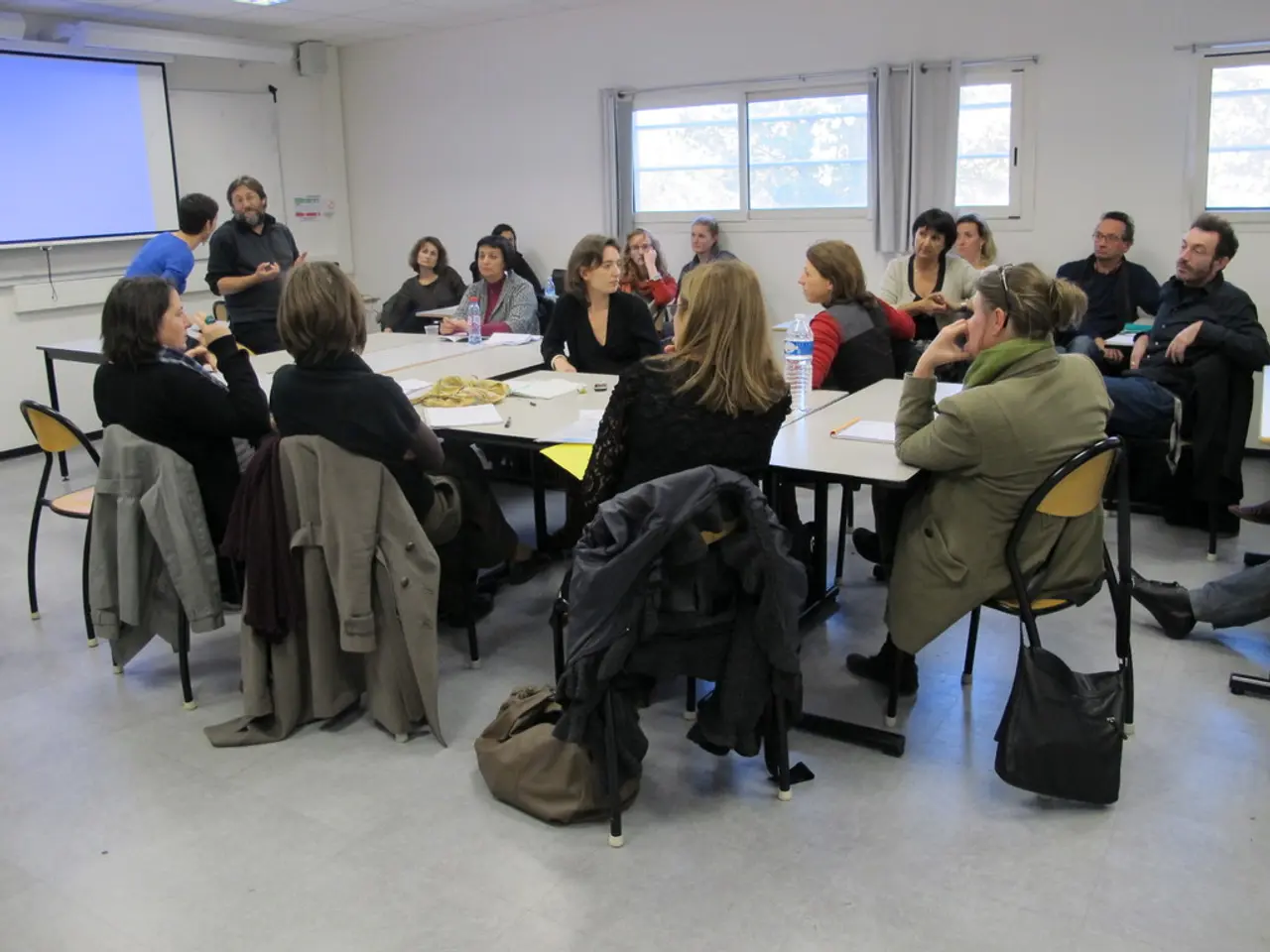Grassroots Movement Gains Momentum Through Collective Effort and Local Insight
In the heart of Rochester, New York, Wilmot's Cancer Community Action Council (CCAC) is fostering a unique collaboration between cancer researchers, clinicians, and the local community. This partnership aims to ensure that cancer care and scientific research are informed by, and responsive to, the community's needs and experiences.
One such collaboration involves Karen Mustian, a leading researcher at Wilmot Cancer Institute, and Reverend Patrina Freeman, a member of the CCAC. Their partnership exemplifies the CCAC's mission to bridge the gap between science and community support.
Mustian, who has been studying the effects of yoga on cancer patients for years, has risen to the top of her field. However, she recognised a gap in her work: the underrepresentation of underrepresented groups, particularly in Rochester's Black community. This realisation led to a fruitful collaboration with Freeman.
Their collaboration has led to several significant outcomes. It has enhanced trust and communication between researchers and community members, enabling more meaningful dialogue about cancer prevention, treatment, and survivorship. It has also integrated holistic care approaches, combining scientific advances with community-based support that addresses broader determinants of health.
Moreover, the partnership has promoted outreach and education tailored to the community, increasing awareness and participation in clinical trials and wellness programs. The duo is currently working on a pilot study using yoga to help cancer survivors in Rochester's Black community. The study, named "SOUL Yoga" (Strengthening, Openness, Uplifting, Letting Go), is being culturally adapted to resonate with the community.
The pilot study is likely to be conducted in the basement of Helping Hand Missionary, with Mustian and Freeman designing and conducting the research. The data collected from this study will be critical for an upcoming National Cancer Institute grant.
Freeman's insights have been invaluable to Mustian. She explained the cultural connotations of the term "religion" among African Americans, helping Mustian to better understand the fear and apprehension Black communities may have about health initiatives.
Mustian values the knowledge and insights provided by Freeman and the CCAC. She recognises the importance of addressing the needs of underrepresented groups and is committed to making her work more inclusive.
In summary, Wilmot's CCAC advances cancer care and research by creating inclusive platforms for engagement. The Mustian-Freeman collaboration is a shining example of this, bridging science and community support, ultimately leading to more effective cancer interventions and improved patient outcomes.
- The collaboration between Karen Mustian, a researcher at Wilmot Cancer Institute, and Reverend Patrina Freeman from the CCAC aims to bridge the gap between science and community support, particularly focusing on enhancing representation in Rochester's Black community.
- The Mustian-Freeman partnership has resulted in significant outcomes, including integrating holistic care approaches, improving trust and communication, and promoting outreach and education tailored to the community, leading to increased awareness and participation in clinical trials and wellness programs.
- The pilot study, named "SOUL Yoga" (Strengthening, Openness, Uplifting, Letting Go), is being culturally adapted to resonate with Rochester's Black community and is likely to be conducted in the basement of Helping Hand Missionary, with Mustian and Freeman leading the research.
- Freeman's insights have proven invaluable to Mustian, helping her to better understand the cultural connotations of terms like "religion" among African Americans and address the fears and apprehensions Black communities may have about health initiatives.
- Mustian values the knowledge and insights provided by Freeman and the CCAC, recognising the importance of addressing the needs of underrepresented groups and committing to making her work more inclusive in the realms of medical-conditions like cancer, health-and-wellness, mental-health, and fitness-and-exercise, as well as finance and diversity-and-inclusion, thereby improving patient outcomes.




